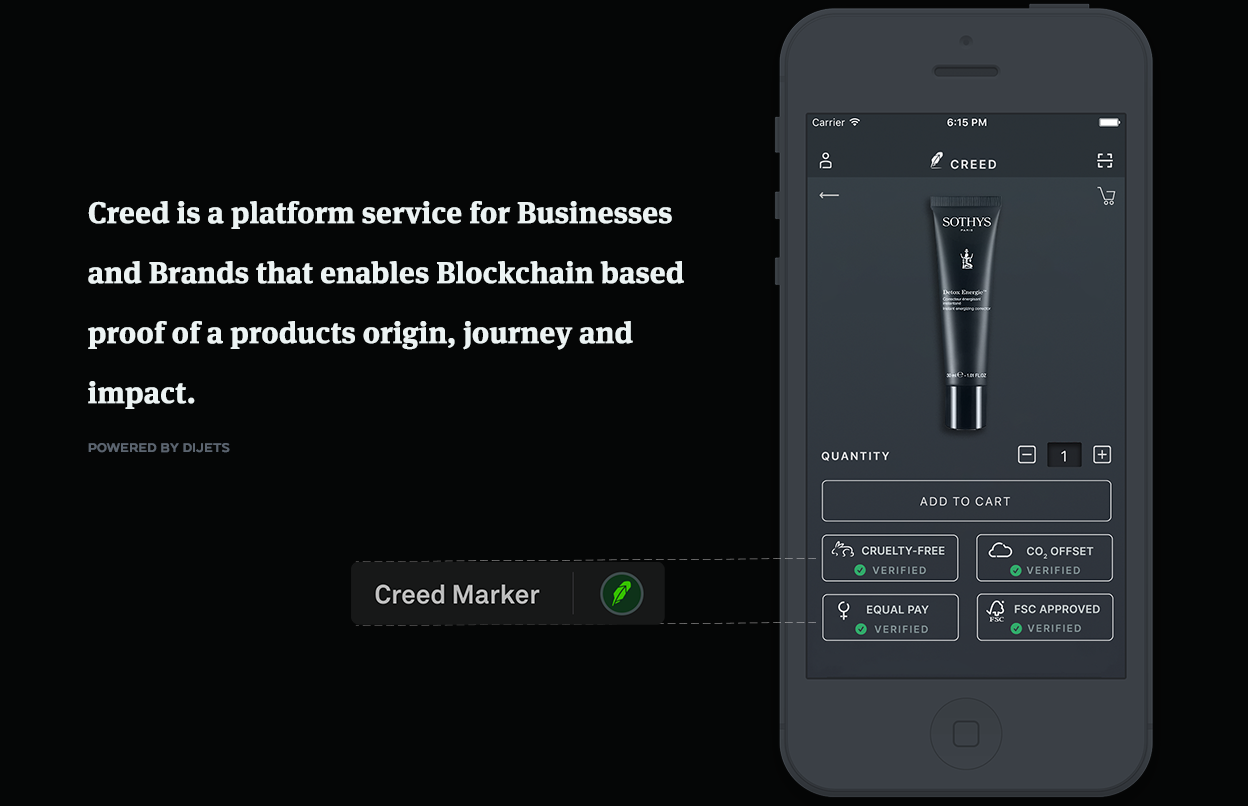-
Climate
Carbon Measured
This business has measured the total greenhouse gas emissions caused by its operations and supply chain or its product. Greenhouse gases (including carbon emissions) from human activities are the most significant driver of climate change.
-
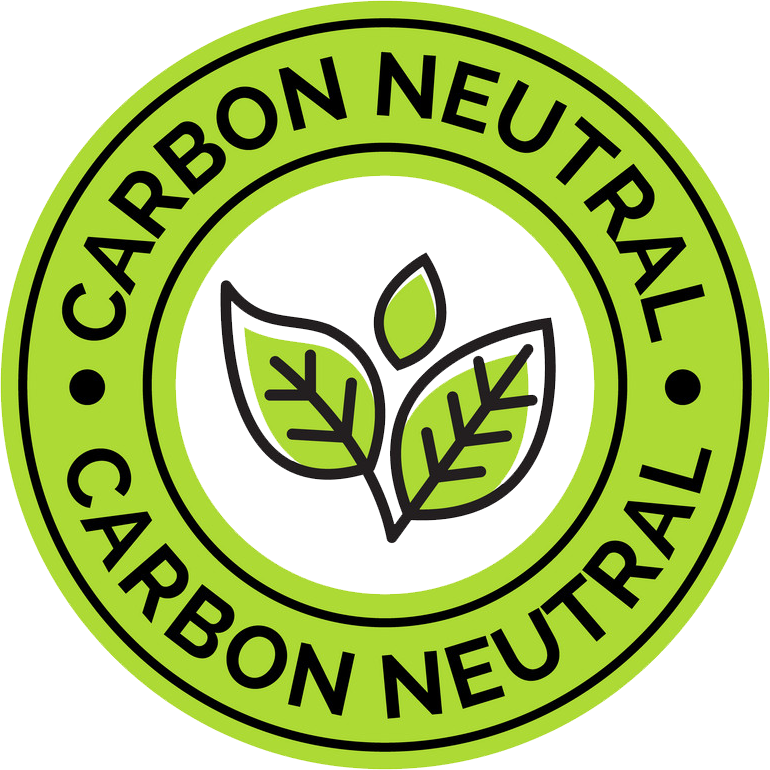 Climate
ClimateCarbonNeutral® Company
The CarbonNeutral® certification was founded in 2002 and is managed by Natural Capital Partners. It provides assurance that a company has measured and reduced its emissions to zero using offsetting and reduction methods.
-
Climate
Carbon Offsetting
This business is funding external projects that sequester greenhouse gas emissions to compensate for its own emissions. Greenhouse gases from human activities are the most significant driver of climate change.
-
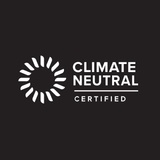 Climate
ClimateClimate Neutral
Climate Neutral is a nonprofit organization founded in 2019. They work to certify brands as Climate Neutral once these have measures, reduced and/or offseted their emissions. The certification is awarded at brand level and includes the GreenHouse Gases associated to the production and delivery of all it's product
-
Climate
Net Zero
This organisation has measured the total greenhouse gas emissions caused by its operations and supply chain or its product and has achieved net zero emissions by reducing its emissions and, where necessary, investing in carbon offsetting projects. Greenhouse gas emissions (including carbon emissions) caused by human activities are the most significant driver of climate change.
-
Climate
Reduced Carbon Footprint
This company has measured its product's total greenhouse gas emissions and has achieved a reduction in emissions through mitigation practices. Greenhouse gas emissions (including carbon emissions) caused by human activities are the most significant driver of climate change.
-
Climate
Reducing Carbon Emissions
This business has implemented one or more practices to reduce its carbon footprint. The practices target key emissions hotspots and have been implemented across the business and supply chain. Greenhouse gases from human activities are the most significant driver of climate change.
-
Climate
Renewable Energy
At least 80% of the energy used is from renewable sources. Renewable sources are defined as those that naturally replenish within a human lifetime (e.g. biomass, wind or solar power).
-
Waste
Compostable Parts
Part of this product's packaging is capable of decomposing naturally in a home compost or in an industrial compost environment, in a way that is not harmful to the environment and produces compost.
-
 Waste
WasteCradle to Cradle
Cradle to Cradle Certified® is a product standard managed by the Cradle to Cradle Institute. To receive certification, products are assessed for environmental and social performance across five categories: material health, material reuse, renewable energy and carbon management, water stewardship, and social fairness.
-
Waste
Fully Compostable
This product's packaging is capable of decomposing naturally in a home compost or in an industrial compost environment, in a way that is not harmful to the environment and produces compost.
-
Waste
Fully Recycled Packaging
All parts of this product's packaging are made from waste materials that have been recovered, reprocessed and converted into new materials.
-
Waste
Partly Recyclable Packaging
Part of this product's packaging is curbside collected and can be broken down into raw materials and repurposed so it can be used again. This does not guarantee that it will be recycled – always check locally.
-
Waste
Partly Recycled Packaging
Parts of this product’s packaging are made from waste materials that have been recovered, reprocessed and converted into new materials.
-
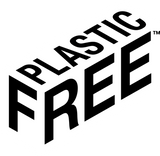 Waste
WastePlastic-free
The Plastic Free™️ certifucation is managed by A Plastic Planet, a campaigning organisation founded in 2017 with the goal of reducing our plastic production and consumption and promoting the development and offer of plastic free alternatives.
-
Waste
Reduced Waste Footprint
This business has measured its total waste production and has taken active steps to reduce it. Measurements show a year-on-year reduction.
-
Waste
Reducing Food Waste
This business has implemented one or more practices to reduce the amount of food waste generated by its production process or sourcing policy.
-
Waste
Reducing Material Waste
This business has implemented one or more practices to reduce the amount of waste from its production process that's sent to landfill or incinerated.
-
Waste
Reusable Packaging
This product's packaging is designed to be reused for the same use case. It's capable of being used repeatedly without impairing its protective function.
-
Waste
Upcycled
Some or all of the parts or ingredients of this product were converted from materials that would have otherwise been discarded. The existing materials or ingredients are reworked into new products. The value of the raw material is elevated through this process.
-
Waste
Widely Recyclable Packaging
This product's packaging is curbside collected and can be broken down into raw materials and repurposed so it can be used again. It may include up to 1% of non-recyclable components that won't impede the overall recyclability. This does not guarantee that it will be recycled – always check locally.
-
 Nature
NatureAlliance for Water Stewardship
The Alliance for Water Stewardship (AWS) is a global membership collaboration comprising businesses, NGOs and the public sector. The AWS standards seeks to help businesses to better understand and manage their water consumption within a catchment context. Certification demonstrates that a site has successfully completed each of the steps in the AWS Standard.
-
Nature
Coral Reef Safe
This product does not contain oxybenzone, octinoxate or nano-particles as they are known to be damaging to coral reefs and can lead to coral bleaching.
-
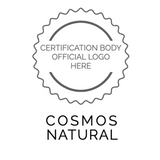 Nature
NatureCosmos Standard Natural
The COSMOS-standard was founded by BDIH, Cosmebio, Ecocert, ICEA the Soil Association and is managed by a not-for-profit. The standard defines the criteria that companies must meet to ensure consumers that their products are genuine organic or natural cosmetics.
-
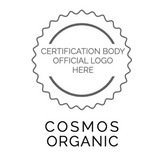 Nature
NatureCosmos Standard Organic
The COSMOS-standard was founded by BDIH, Cosmebio, Ecocert, ICEA the Soil Association and is managed by a not-for-profit. The standard defines the criteria that companies must meet to ensure consumers that their products are genuine organic or natural cosmetics.
-
 Nature
NatureCruelty-Free (PETA)
PETA is an animal rights organisation founded in 1980 by Ingrid Newkirk & Alex Pacheco and is headquartered in Virginia, USA. PETA's certification body sets a standard for ‘cruelty-free’ and ‘vegan’ products. These include cosmetics, personal-care and household-cleaning products.
-
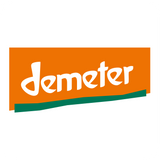 Nature
NatureDemeter Biodynamic
The Demeter standard was introduced in 1928 based on Rudolf Steiner’s work and views on holistic farming. Demeter’s principles include regeneration, integration of nature & human beings, ecological and social responsibility The Biodynamic mark means that farms meet the organic standard including the prohibition of synthetic chemical fertilisers, pesticides, herbicides and fungicides, but then it goes much further. Emphasis is on the generation of farm inputs out of the living dynamics of the farm itself, rather than being imported from the outside. Dependence on imported materials for fertility and pest control is reduced. Water conservation is considered. Farms are required to maintain at least 10% of total acreage as a biodiversity set-aside.
-
Nature
Free Range
This product was produced from animals that can roam freely outdoors during the day for a significant period of their lives. This time period is specified by national laws.
-
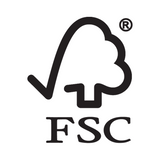 Nature
NatureFSC
The Forest Stewardship Council (FSC) is an international, non-governmental organisation established in 1993 and dedicated to promoting responsible management of the world’s forests. FSC certification allows businesses and consumers to identify, purchase and use wood, paper, and other forest products made with materials from well-managed forests and/or recycled sources.
-
Nature
Improving Farming
This business has implemented practices to transition towards a more regenerative and sustainable farming system. Practices have been implemented across the farm and target issues such as soil fertility and water quality.
-
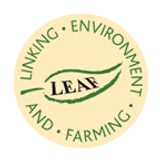 Nature
NatureLeaf Marque
LEAF Marque is a wholly-owned subsidiary of LEAF (Linking Environment And Farming). It seeks to deliver more sustainable farming that is prosperous, enriches the environment and engages local communities. All farmers have to implement Integrated Farm Management (IFM). The LEAF Marque Standard has a whole-farm approach that is based on the principles of IFM, including soil, water and pollution management, energy conservation, crop health and protection, wildlife habitats enhancement and community engagement. LEAF was founded in 1991.
-
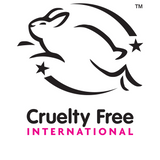 Nature
NatureLeaping Bunny
Cosmetics, personal care and household brands are approved cruelty free under Cruelty Free International's Leaping Bunny Programme. This gold standard gives you assurance that a company has made a genuine commitment to help end ending animal testing. Brands must meet rigorous criteria which apply globally and extend over and above laws governing animal testing and include ongoing independent audits. Only then can they display the Leaping Bunny logo.
-
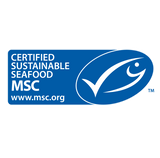 Nature
NatureMSC
This seafood is MSC certified. This means that the fishery where it was caught has been audited by a third party and meets the MSC Fishery Standard for sustainability. The standard ensures that fish stocks are healthy, environmental impacts minimised, and effective fishery management is in place. All actors along the supply chain that sell on the seafood must have an MSC chain of custody certificate, to ensure their supply is certified, identifiable and separated. This ensures all the MSC labelled fish is wild, traceable and sustainable.
-
 Nature
NatureNatrue Natural
NATRUE is a non-profit association, founded in 2007 by WALA, Weleda, Laverana, PRIMAVERA, LOGOCOS and CEP, it maintains the NATRUE Organic and Natural Standards. NATRUE works for better regulation of natural and organic cosmetic products and advocates for an official definition of natural and organic cosmetics. The NATRUE label was created in 2008 to help consumers identify natural and organic cosmetics.
-
 Nature
NatureNatrue Organic
NATRUE is a non-profit association, founded in 2007 by WALA, Weleda, Laverana, PRIMAVERA, LOGOCOS and CEP, it maintains the NATRUE Organic and Natural Standards. NATRUE works for better regulation of natural and organic cosmetic products and advocates for an official definition of natural and organic cosmetics. The NATRUE label was created in 2008 to help consumers identify natural and organic cosmetics.
-
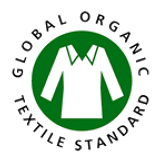 Nature
NatureOrganic Cotton (GOTS)
The Global Organic Textile Standard (GOTS) was established by two organic organisations and two textile organisations in 2006 with the intention of harmonising existing international organic textile standards. This standard stipulates requirements throughout the supply chain for both ecological and labour conditions in textile and apparel manufacturing using organically produced raw materials. GOTS covers all aspects of the production of all natural fibres of organic status including textile processing, manufacturing, packaging, labelling , exportation, importation and distribution.
-
Nature
Organic Ingredients
This product contains some certified organic ingredients but is not certified as organic.
-
Nature
Pasture Raised
This product was produced from animals that were free to roam outside most of the year. A majority of their feed was grass, although some grain may have been provided as complimentary feed.
-
Nature
Protecting Water Quality
This business has implemented one or more practices to reduce the pollution discharge in water as a result of operations and production.
-
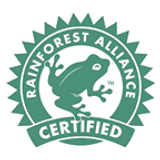 Nature
NatureRainforest Alliance
The Rainforest Alliance was founded in 1967, in 2017 they merged with UTZ. They work to protect forests, improve the livelihoods of farmers and forest communities and help them mitigate and adapt to the climate crisis. The Rainforest Alliance certification seal indicates that a farm, forest, or tourism enterprise has been audited to meet enviornmental and social standards.
-
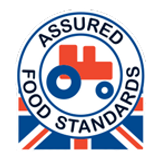 Nature
NatureRed Tractor
Red Tractor was founded in 2000. It’s core purpose is to ensure that products produced, processed and packaged in the UK meet human consumption safety standards.
-
Nature
Reduced Water Footprint
This organisation has measured its total water consumption and has taken active steps to reduce it. Measurements show a year on year decrease.
-
Nature
Reducing Water Use
This business has implemented one or more practices to reduce water consumption as a result of operations and production. This can include water efficiency gains, reduced water consumption, and practices that address water insecurities.
-
 Nature
NatureRSPCA Assured
The RSPCA Assured scheme was created in 1994 (as Freedom Food) and focuses on improving animal welfare in agricultural and aquaculture farming systems. Standards are specific standards to the type of farming (indoor, outdoor, free-range, or organic) and cover the whole production chain (from health and diet to slaughter).
-
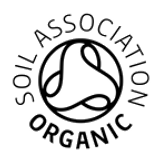 Nature
NatureSoil Association Organic
The Soil Association was formed in 1946 and published its first organic standard in 1967. The Soil Association Organic certification is available for Food & Drink, Farming, Beauty, Fashion, Forestry and Food Service industries. It focuses on safeguarding the environment with additional standards protecting animal welfare and human health.
-
Nature
Supports Biodiversity
This business has implemented – and/or provided monetary or in-kind donations to – projects or initiatives supporting biodiversity conservation in its supply chain, as a means to mitigate its footprint on biodiversity.
-
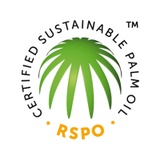 Nature
NatureSustainable Palm Oil (RSPO)
RSPO is a non-profit association, established in 2004 that has developed a set of environmental and social criteria which companies must comply with in order to produce Certified Sustainable Palm Oil (CSPO), These criteria can help minimise the negative impact of palm oil cultivation on the environment and communities in palm oil-producing regions. Products using RSPO certified palm oil can use the RSPO trademark.
-
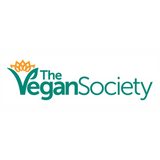 Nature
NatureThe Vegan Society Trademark
The Vegan Trademark is a vegan standard created and managed by The Vegan Society. The Vegan Society was founded in 1944. Their vision is to make veganism more mainstream.
-
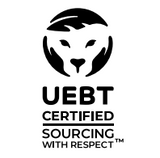 Nature
NatureUEBT
UEBT is a non-profit association founded in 2007 that provides a globally recognised standard for sustainable sourcing and the use of raw materials. They work to regenerate nature and secure a better future for people through ethical sourcing of ingredients from biodiversity. The certification looks at a company’s or ingredient's entire sourcing system to verify that the right policies are in place to biodiversity is conserved, ingredients are sourced sustainably, and that workers in the supply chain are treated equitably and paid fairly. UEBT ethical sourcing system certification began in 2018 with Weleda and Natura Cosmetics as launching partners.
-
Nature
Vegan
The product contains no animal products – or derivatives of animal products – and none were involved in the production process.
-
Nature
Vegetarian
This product does not contain any ingredients that are the result of animal slaughter, or use any in the production process.
-
Workers
Artisan Producers
This product helps promote traditional crafts and its production relies on the skills of artisans.
-
Workers
Audited Working Conditions
This business's workplace has been independently audited against internationally recognised standards for human rights at work. While audits can help companies identify risks and areas of improvement, they have limitations and additional due diligence is required to guarantee a safe workplace.
-
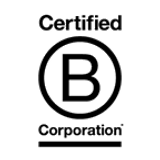 Workers
WorkersB Corporation
B Corporation is a certification offered by B Lab, an independent, non-governmental, not-for-profit organisation. The certification assessed a company's social and environmental performance, from supply chain and input materials to charitable giving and employee benefits. B Corp certification signals a business's intention to keep purpose at the core of the company.
-
Workers
Cooperative Organisation
This farm, business or other organisation is owned and run jointly by its members, who share the profits and/or benefits.
-
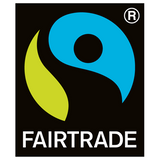 Workers
WorkersFairtrade
The Fairtrade Foundation was founded in 1992, they manage the Fairtrade Mark in the UK. The certification's social and economic standards are set by Fairtrade International for both businesses and producers.
-
Workers
Improving Purchasing Practices
This business has implemented purchasing practices to drive the improvement of working conditions or workers in the supply chain.
-
Workers
Living Wage
This business pays all its employees a living wage. A living wage is when a worker's net income allows them to support their household with a decent standard of living. This amount varies depending on the worker's location, their employment pattern and who is in their household.
-
Workers
Supports Trade Unions
All workers in this business have the right to unionise and bargain collectively for their rights.
-
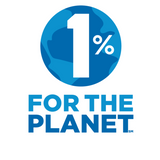 Communities
Communities1% for the Planet
1% for the Planet is a global movement inspiring businesses and individuals to support environmental solutions through annual membership and everyday actions.
-
Communities
Black Founded Business
More than half (51%) of the people who started the company identify as Black.
-
Communities
Black Owned Business
The majority (51%) of shares in this business are owned by people who identify as Black.
-
Communities
Clinically Tested
This product was independently tested on humans in a clinical setting to ensure safety and performance.
-
Communities
Donates to Charity
Provided monetary or in-kind donations to one or more non-profits in the last year.
-
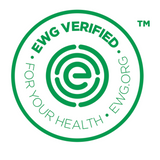 Communities
CommunitiesEWG VERIFIED™
The EWG VERIFIED™ mark is managed by the Environmental Working Group (EWG), a nonprofit founded in 1993. The organisation conducts research and gathers information about consumer products, cosmetics, energy and toxic chemicals and strives to push industries to adopt their standards.
-
Communities
Family Owned Business
The majority (51%) of shares in this business are owned by people who identify as a family.
-
Communities
Female Founded Business
More than half (51%) of the people who started the company identify as Female.
-
Communities
Female Owned Business
The majority (51%) of shares in this business are owned by people who identify as Female.
-
Communities
Free From Artificial Flavours
The product does not contain synthetically produced flavours. It may contain flavours derived from natural ingredients.
-
Communities
Free From Synthetic Preservatives
This product does not contain any synthetically produced preservatives. It may contain natural preservatives.
-
Communities
Independently Owned
The business is majority owned (51%) and operated by the same person or group of people.
-
Communities
No Added Sugar
The product does not contain any foods used solely for their sweetening properties. It may contain naturally occurring sugars.
-
Communities
Person of Colour Founded Business
More than half (51%) of the people who started the company identify as being people of colour.
-
Communities
Person of Colour Owned Business
The majority (51%) of shares in this business are owned by people who identify as people of colour.
-
Communities
Scientifically Tested
This product was independently tested in a laboratory to ensure safety and performance.
-
Communities
Supporting Education
This business has implemented – and/or provided monetary or in-kind donations to – projects or initiatives supporting education in its supply chain.
-
Communities
Supporting Health
The business implemented and/or provided monetary or in-kind donations to projects or initiatives supporting health in its supply chain.

